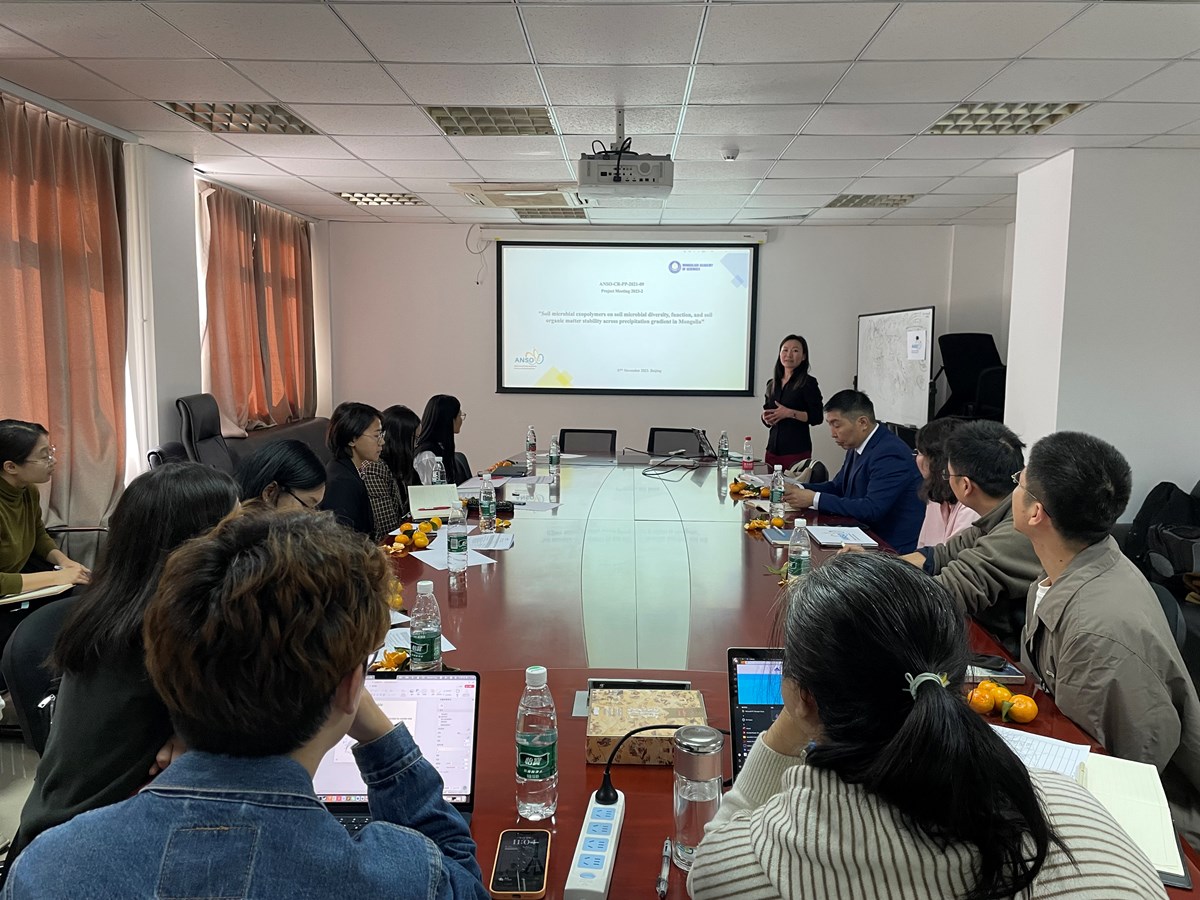
Researchers from Institute of Biology, Mongolian Academy of Sciences visit Research Center for Eco-Environmental Sciences, Chinese Academy of Sciences
The Institute of Biology of the Mongolian Academy of Sciences (IB, MAS) initiated a collaborative research project, generously funded by the Alliance of International Science Organizations (ANSO), in collaboration with the Chinese Academy of Sciences and Academia Sinica in 2022. The primary, aim of this joint project is to understand the roles of exopolymer-producing microbes and their community diversity in maintaining soil health along the precipitation gradient in Mongolia.
As an integral part of the project, the Mongolian collaborators recently visited Professor Ye Deng’s laboratory at the Research Center for Eco-Environmental Sciences, Chinese Academy of Sciences (RCEES, CAS). The foremost objectives of this visit were to enhance the understanding of the ongoing project activities and to receive comprehensive training in the application of bioinformatics methods employed in microbial community ecology.
The discussion during the visit centered on the
current progress of research and future activities. Emphasis was laid on the
analysis of high-throughput sequencing data, which is essential for discerning
the community diversity of exopolymer-producing microbes in soil, aligning with
the key objectives of this collaborative project.

Professor Gantulga Davaakhuu, Director of IB, MAS,
along with Dr. Adiyadolgor, the Scientific Secretary of IB, MAS, graciously engaged
in these discussions, encouraging future collaborations focused on tackling the
restoration of degraded soils. Additionally, the delegates visited key
laboratories dedicated to addressing environmental issues, such as water
pollution and soil degradation, at RCEES, CAS.
.png?w=1200)
Group members of Prof. Ye Deng’s laboratory provided several training courses for the Mongolian team, including students and assistants. The training sessions encompassed amplicon sequencing data processing, database construction and primer design of functional genes, analysis of microbial community assembly mechanism, and network analysis and visualization for microbiome studies. These methods are integrated in the Galaxy platform developed by Prof. Deng’s group. This training establishes a crucial foundation for the Mongolian team, enabling them not only to complete the current research objectives but also pursue their future studies in microbial community ecology.
.png?w=1200)